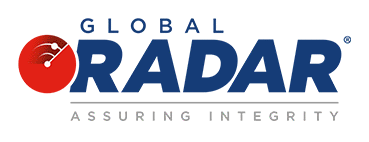From the outset of 2024, U.S. financial regulators and lawmakers have pushed to further augment national anti-money laundering defenses, this as growing threats from money laundering and terror financing exploits continue to threaten American interests in wake of the recent geopolitical conflicts playing out along the Mediterranean coast and beyond. Earlier this year, the U.S. Treasury Department moved forward with an unprecedented new rule that would require realtors to disclose the names of individuals and entities acting behind anonymous shell companies, LLC’s and trusts involved in all-cash purchases and transfers of residential real estate. This move is a major step forward in closing what has long been viewed as arguably the most significant loophole in U.S. anti-money laundering (AML)/counter terrorism financing (CFT) regulations, one which has allowed for a significant influx of foreign funds – often of questionable origins – to infiltrate the U.S. financial system unobstructed.
During this same period in early 2024 another federal regulator – the Financial Crimes Enforcement Network (FinCEN) – proposed regulations of their own targeting investment advisors registered with the U.S. Securities and Exchange Commission (SEC). Following a period of unprecedented growth for the U.S investment sector, the regulator identified this area as one posing significant risks to national security and one in need of increased transparency to avoid exploitation. Following the release of FinCEN’s 2024 Financial Trend Analysis report earlier in the year, investment advisers were highlighted as a vehicle that had been used to launder funds in relation to cases of fraud, corruption, and tax evasion. These developments also come shortly after FinCEN discovered multiple foreign adversaries of the United States, including China and Russia, were investing in early-stage companies via use of investment advisers in order to access sensitive information and emerging technologies for personal gain. FinCEN is now aiming to task covered investment entities with their own unique set of AML compliance reporting rules to bring malicious actors to light.
A newly proposed rule announced this past week will seek to complement the initial measures brought forth by the regulator in February. As part of the new package, registered investment advisors (RIA’s) and exempt reporting advisors (ERA’s) – whom to this point in history had been exempt from any staunch AML compliance requirements – would be forced to implement many of the same AML/CFT safeguards that their broker dealer and mutual fund counterparts are currently subjected to. The initial requirements of the newly proposed rule would require covered advisers to establish a risk-based, procedural system for identifying and verifying the identity of their clients in order to “form a reasonable belief that [they] know the true identity of each customer.”2 As part of this process, advisers would have to obtain each customer’s name, date of birth or date of formation (in the case of a limited liability company), address, and an identification number. They would also be required to vet the information they acquire on their customers against various federal and global watch lists and blacklists. This process would also ultimately include requirements for timely filing of suspicious activity reports (SARs) with FinCEN based on the information discovered, and would also formally establish maintenance and record-keeping requirements for these individuals to better deter suspected money laundering activity.
All told, the new legislation is aimed at combatting illicit financial activity domestically with hopes that its reach could also extend beyond our borders given the propensity to involve overseas targets. Enhanced customer identification programs (CIP’s) and Know Your Customer (KYC) protocols have seen significant results with respect to identifying illicit activity across the U.S. financial services sector to date, and the federal government is confident it will achieve a similar response in the investment realm. “The proposed rule is designed to make it more difficult to use false identities to establish customer relationships with investment advisers,” said SEC Chair Gary Gensler. “I support this proposal because it could reduce the risk of terrorists and other criminals accessing U.S. financial markets to launder money, finance terrorism, or move funds for other illicit purposes.”2
This year’s developments are not the first time that FinCEN has sought to expand surveillance and reporting requirements for those operating in this sector however, and opponents of the new rule are not likely to take its potential passing lying down. During its previous inquiries, the regulator was met with serious backlash from the industry, ultimately leading them to drop their potential efforts altogether.3 While early responses to the proposed legislation have been mixed, the latest push does appear to have more steam behind it than previous efforts.
SEC Commissioner Mark Uyeda, who voted against the rule, said in a statement the agencies should wait for FinCEN to finalize its February proposal so that “the scope of this proposal would have been known and the commission and the public would have been better able to analyze its costs and benefits.” Uyeda also expressed concern for how these regulations would impact small-time advisers who lack the resources of more high-end advisers. Uyeda as not alone in this concern. IAA General Counsel Gail Bernstein echo this sentiment, stating “We urge the SEC and the Treasury Department to develop a tailored approach that effectively addresses specific risks while avoiding unnecessary regulatory burdens, especially burdens on smaller SEC advisers.”1
To those at the SEC and FinCEN in support of the proposed financial adviser rule, this is simply the next logical step in cracking down on money laundering across the domestic financial system. Banks, lenders, and related businesses are already required to maintain risk-based CIP programs in which they vet their clients, maintain records, and report any suspicious activity. Requiring financial advisers to do the same may ultimately help to further hinder the ability of bad actors to use this avenue to circumvent compliance regulations maintained across most U.S. financial institutions. It would also create greater uniformity across the board with respect to regulatory compliance requirements in the financial industry, setting a precedent for the United States’ international allies.
“Criminal, corrupt, and illicit actors have exploited the investment adviser sector to access the U.S. financial system and launder funds,” said FinCEN Director Andrea Gacki in a press release. “This proposal would help investment advisers better identify and prevent illicit actors from misusing their services while advancing a harmonized set of CIP obligations.”2
Citations
- Nicodemus, Aaron. “SEC, Fincen Propose Customer ID Program for Investment Advisers.” Compliance Week, Compliance Week, 16 May 2024.
- “SEC, FinCEN Propose Customer Identification Program Requirements for Registered Investment Advisers and Exempt Reporting Advisers.” SEC , 13 May 2024.
- Tokar, Dylan. “Investment Advisers Face Customer Vetting Requirements in Anti-Money-Laundering Push.” The Wall Street Journal, 13 May 2024.

